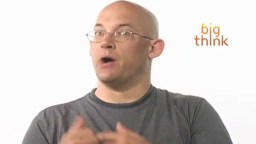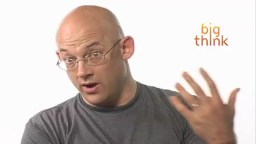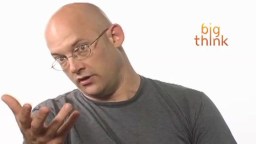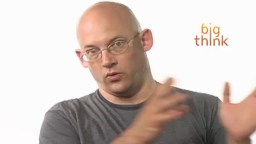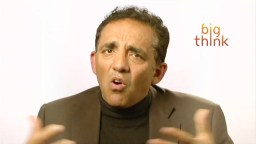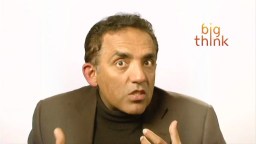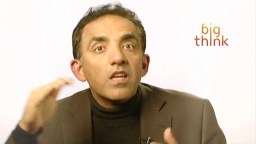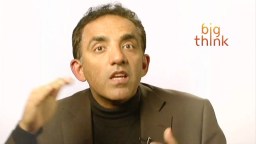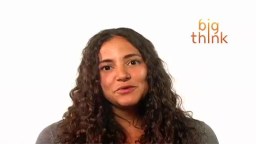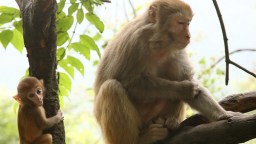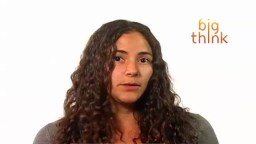All Videos
All Stories
Our two great visions of leadership — the grand visionary and the micro-manager — no longer make sense.
▸
3 min
—
with
Ariely’s “IKEA effect”: Not only do we like things that we make more than similar things made by others—but we think other people should value them more as well.
▸
3 min
—
with
People who are very attractive care more about attractiveness in a mate, while unattractive people want a partner who is kind and has a good sense of humor.
▸
7 min
—
with
”I don’t believe that there’s any work coming in which the telecommuting model becomes the normal case for most workers.”
▸
3 min
—
with
Like the personal computer, e-mail and instant messaging, social networks are now vital for businesses—even if they are also distractions.
▸
6 min
—
with
Online dating could be a crucial tool for single people, but with the sites we have now you’ll likely spend six hours searching for every date you go on.
▸
8 min
—
with
A conversation with the James B. Duke Professor of Psychology and Behavioral Economics at Duke University.
▸
39 min
—
with
The primary value of participation is the positive sense of self that comes from personal and public action.
▸
2 min
—
with
The Internet allows the adults of the developed world to collectively pool their trillion hours per year of free time.
▸
5 min
—
with
A conversation with the writer and NYU Interactive Telecommunications Professor.
▸
38 min
—
with
Removing obstacles to majority rule in the Senate, such as the filibuster, may be necessary as American politics continue to fracture into increasingly opposed parties according to Emory University political […]
▸
2 min
—
with
Personal attacks and overheated rehtoric are nothing new across the spectrum of American political history. Emory University political scientist Alan Abramowitz discusses the mud slung at Jefferson, Roosevelt and other […]
▸
2 min
—
with
Emory University political scientist Alan Abramowitz says that having clear differences between Democrats and Republicans can be good for America’s democratic system, but can lead to higher levels of animosity […]
▸
3 min
—
with
Changing demographics will continue to reinforce a move toward polarization across American politics according to Emory University political scientist Alan Abramowitz.
▸
3 min
—
with
Alan Abramowitz is the Barkley Professor of Political Science at Emory, and a renowned expert on national politics and elections. His expertise includes election forecasting models, party realignment in the […]
▸
7 min
—
with
Political scientist Alan Abramowitz says calls to “heal the divide” across political parties and bring back the center are unlikely to materialize into real action. Bipartisanship today is difficult due […]
▸
4 min
—
with
Alan Abramowitz is the Barkley Professor of Political Science at Emory, and a renowned expert on national politics and elections. His expertise includes election forecasting models, party realignment in the […]
▸
4 min
—
with
Emory University political scientist Alan Abramowitz profiles citizen driven to action when their political party is not currently in power.
▸
3 min
—
with
We are a moving toward an inclusive, empowered, engaged, interactive model of leadership where employees are encouraged to participate.
▸
4 min
—
with
Collaboration between businesses isn’t rocket science. So why are so many companies missing the boat on creating alliances?
▸
6 min
—
with
Companies have a much harder time being “customer-centric” than they are willing to admit.
▸
6 min
—
with
A conversation with the Harvard Business School professor.
▸
12 min
—
with
From falling prey to expectations to taking advice from friends, an understanding of our cognitive evolution helps us avoid misperceiving the limits of our knowledge.
▸
4 min
—
with
Cognitive science reveals that policymakers should better understand how deeply our decisions are influenced by the presentation of choices.
▸
3 min
—
with
From elaborate dancing displays to incredibly attractive armpits, the animal kingdom is full of colorful ways for males to woo mates.
▸
2 min
—
with
There are morphological indications that we’re somewhere between a species meant to pair bond and our polygamist evolutionary relatives.
▸
3 min
—
with
Our two closest living primate relatives, chimpanzees and bonobos, leave scientists puzzled over the origins of human sexual behavior.
▸
4 min
—
with
Our ability to learn from others is crucial for the evolution of cumulative technologies, but often paralyzes our causal intuition.
▸
4 min
—
with
Why our prejudices may be deeply ingrained in our evolutionary development.
▸
6 min
—
with
Why Wall Street investors may think more like monkeys than we might have imagined.
▸
2 min
—
with
